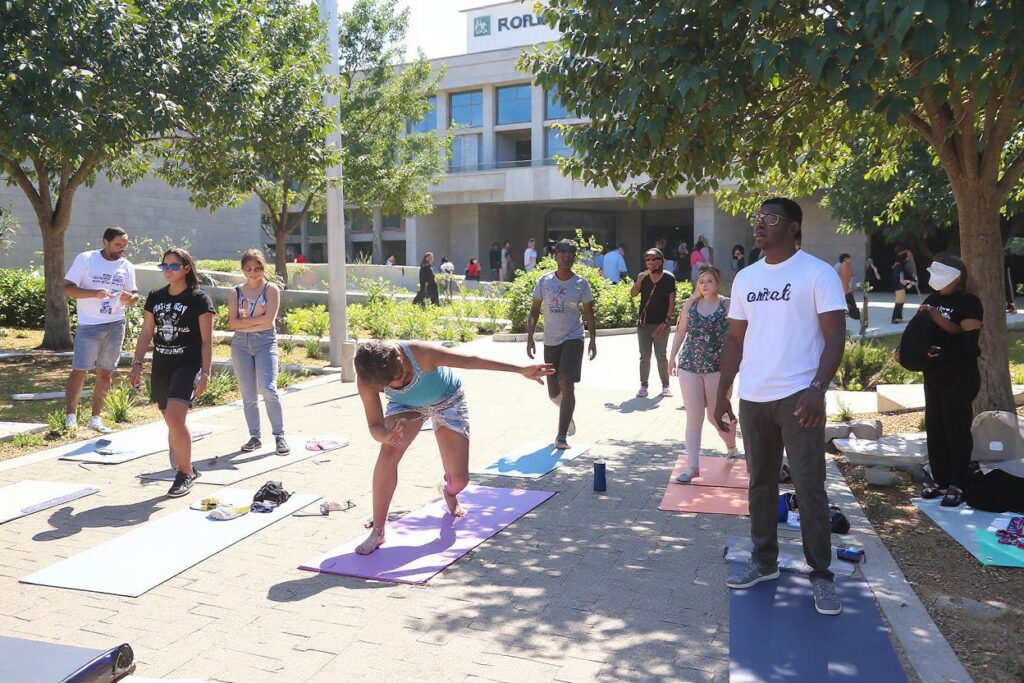
Friends matter now more than ever, but, as any adult who has tried would know, knowing how to make friends does not come so easily. The good news is, there is no better place to connect with strangers than at college or university.
Understandably, it’s tricky to come out of your shell when you’re in a foreign country and in an environment you’re not accustomed to. Plus, there is no guaranteed way to make a friend — a lot of trial and error will be involved.
We assure you, however, that it is all worth it. Here are our top advice, collected from experts and people who have succeeded, on how to make friends at university:
 If you're unsure about how to make friends because you don't have topics to chat, try discussing about BLACKPINK, or the weather — frequently.
If you're unsure about how to make friends because you don't have topics to chat, try discussing about BLACKPINK, or the weather — frequently.
Get chatty
First things first, get comfortable being chatty. Every friendship starts by talking — let it be you! If you’re shy, just comment about something light like BLACKPINK, the weather or the smell of the room. Don’t worry about your grammar or pronunciation — after all, the more you practise, the better you’ll be.
When you’re comfortable start divulging tiny secrets to them. Before long, you could be sharing inside jokes!
Join online groups
Start online with Facebook — each uni usually has several formal and informal groups. Your International Office will often post events you can join.
Alternatively, you can also join academic clubs and societies. The Golden Key is one among several collegiate honour societies with sectors around the world. As a member of this platform, you’ll gain access to professional development webinars, online networking, virtual projects, and so forth.
Good neighbour attitude
If you’re living on-campus, you’re won half the battle. New people are practically surrounding you all the time. We suggest getting acquainted with your neighbours and if you’re sharing a room, don’t be shy to bond! It’s important to establish good relationships with people around your living quarters.
Attend events
Many faculties will host events for freshmen — or freshers if you’re in the UK — during your first few weeks. Attend as many as you can because this gives you a chance to meet the other newbies in your course along with teachers and more senior students. It’s also a great chance to network, which is a skill you’ll need for the real world.
If you’re a music lover, go to performances. Sure, it isn’t great to go to these alone, but once the band starts playing, you’ll likely forget about this — and even find your new crew.
 Many unis will have activities during your initial time there. This can include yoga to activities outside campus like tours and even eating out.
Many unis will have activities during your initial time there. This can include yoga to activities outside campus like tours and even eating out.
Get out of your comfort zone
Many unis will have activities during your orientation weeks. This can include yoga as well as activities outside campus like city tours and group dining out sessions. Sign up because this is a better chance to bond with people over social activities and fun experiences.
Hang out in communal areas
If your uni quarters have a shared kitchen or common room, spend some time there. Chances are high that you’ll be able to strike up a conversation with a friendly student and make them your bestie.
By being proactive and asking people to study together or attend online events will help develop your personal skills. This is key to preparing for real world situations.
Strike up a conversation
Whether it be with your peers, professors or faculty, make an effort to talk to people in your classes, lectures and seminars (yes, even online). These are great places to meet new friends and form a good bond with your teachers.
Volunteer
Volunteering in your local community will help not only meet new people but add valuable experience to your CV. A win-win in any situation as you’ll contribute to local causes and meet people in the same boat.
Sign up for a mentoring programme
If you’re still too shy to come out of your shell, get in touch with your uni’s office and find out whether they have a mentoring programme. This essentially works like the buddy system at school where you’ll get one-on-one time to share knowledge, skills and experience.
It’s a great icebreaker to begin your personal progress development with another individual. It will also help you develop skills such as communication and personal skills, and help give you a sense of fulfilment.










